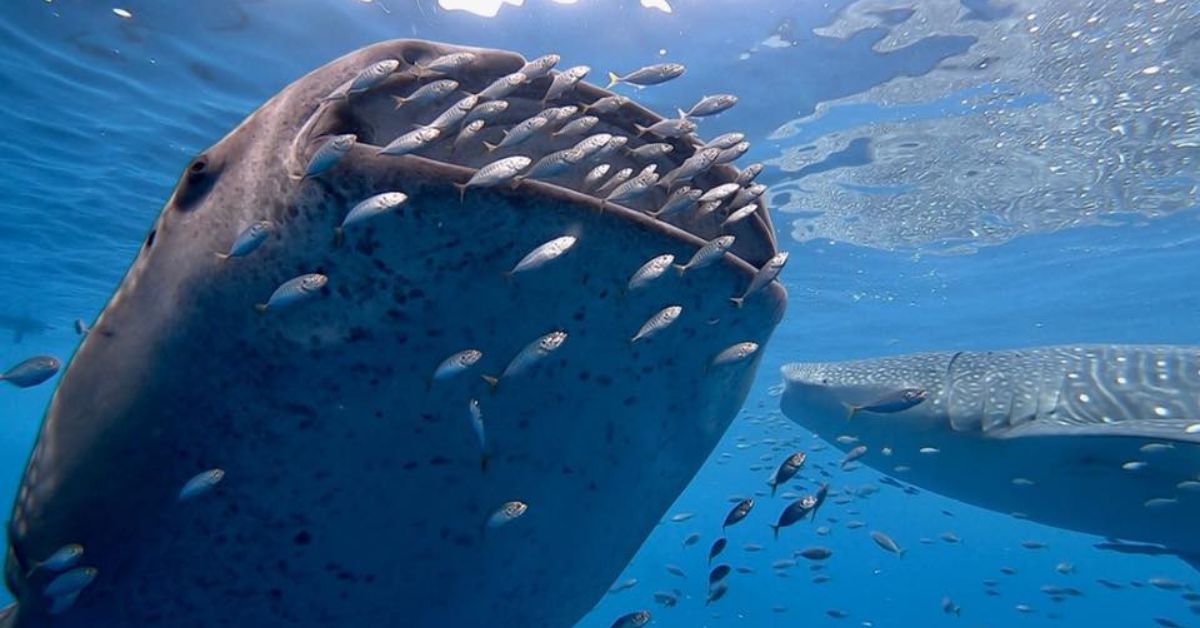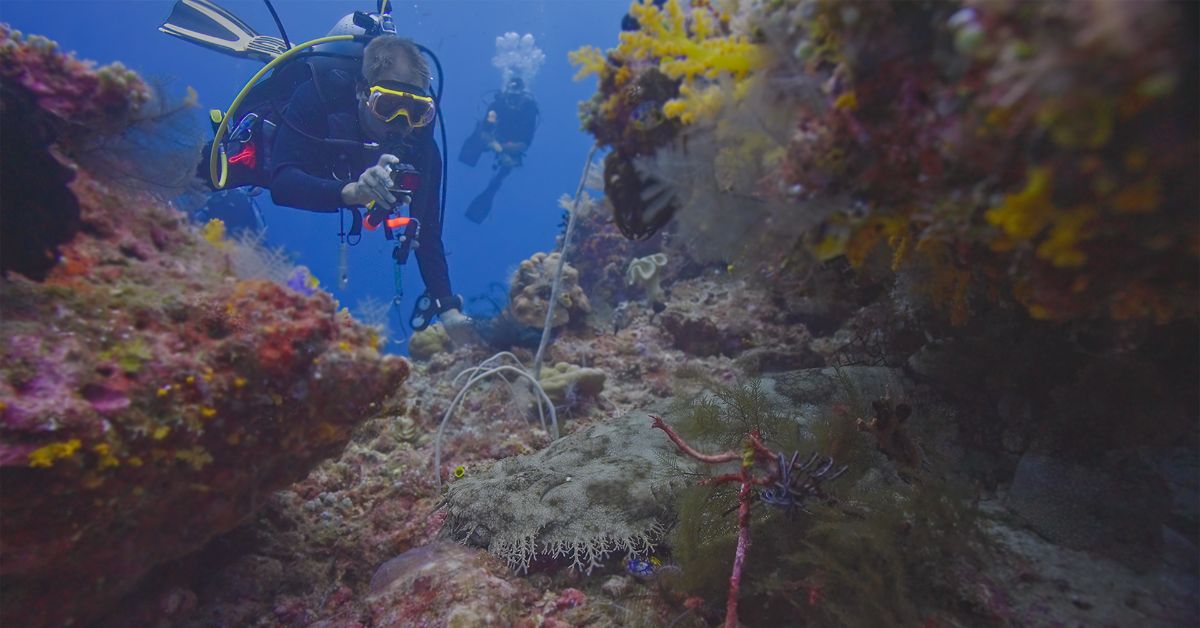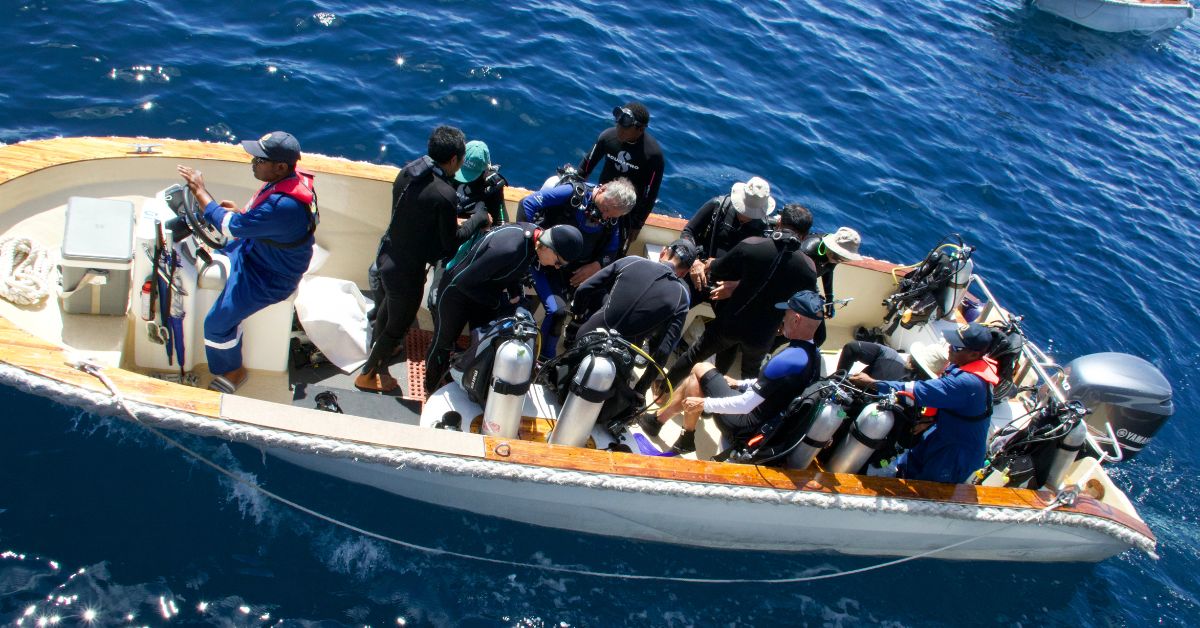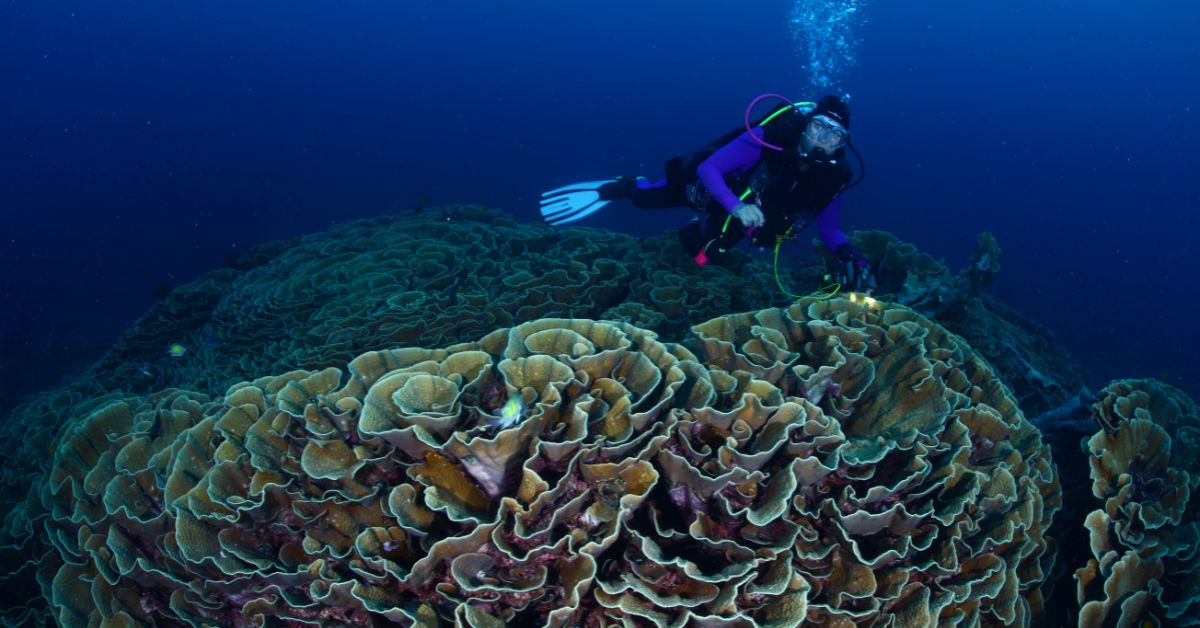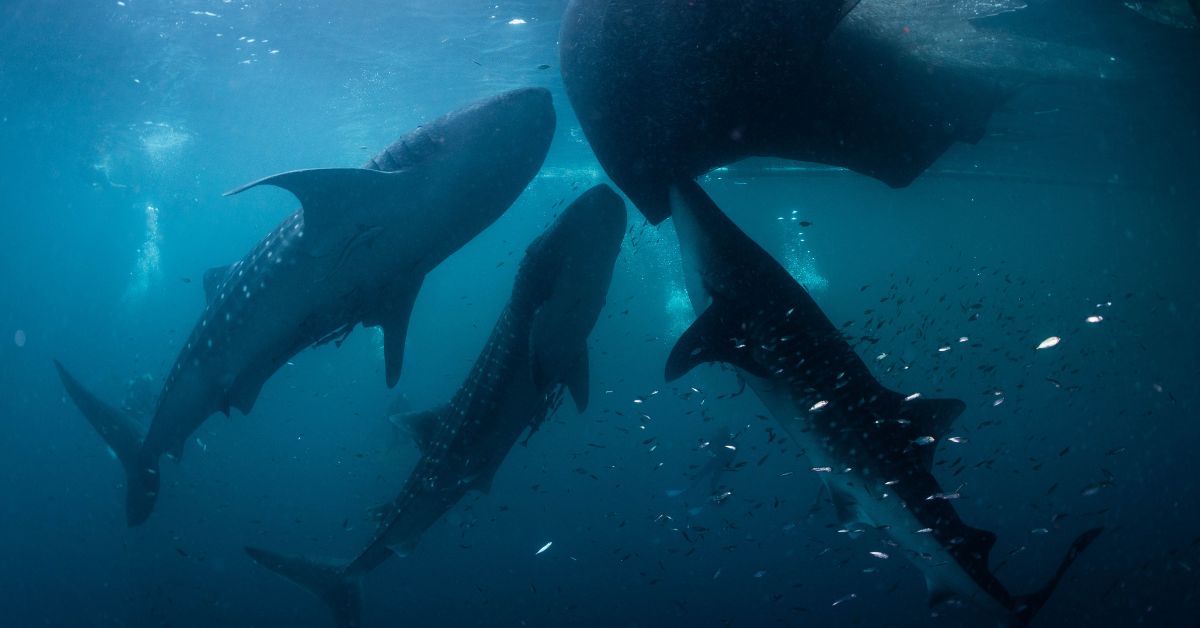Planning a dive trip is an exciting endeavor, filled with anticipation for the underwater adventures awaiting you. However, to ensure that this experience is both enjoyable and financially manageable, building a comprehensive budget is crucial. Budgeting for your dive trip helps you allocate funds efficiently and allows you to anticipate and cover all necessary expenses without unwelcome surprises.
By organizing your finances, you can make informed decisions about every aspect of the trip—from travel and accommodations to equipment rentals—leading to a stress-free, memorable journey. Embracing the discipline of budgeting empowers you to savor each dive, knowing that you’ve covered all your financial bases. Discover how to build a budget for your dive trip and confidently embark on your underwater adventure, knowing you have accounted for every financial aspect.
Destination Fees
Diving destinations drastically shape your dive trip’s budget. Different locations add up varying costs for travel, accommodation, and diving activities. Certain factors that increase costs include:
- Location popularity
- Travel distance and time
- Local regulations
- Number of dive sites you visit in the area
- Extra places and activities in the area
- Currency exchanges
Exchange Rates
Understanding the exchange rate and the accepted forms of payment in your chosen location will help you manage your finances more efficiently. If your home currency is weaker compared to the destination’s currency, you might find that accommodation, food, and diving activities are more expensive than initially anticipated. Conversely, a stronger home currency might stretch further, giving you more flexibility in your budget.
Additionally, knowing about exchange rates allows you to time your currency conversions strategically, potentially saving money. Exchange rates can fluctuate due to various economic factors. Staying informed and converting your money when rates are favorable can provide more financial leverage during your trip.
Buying Locally vs. At-Home
Consider what items you should purchase beforehand versus at the destination. Some diving gear and essentials might be cheaper and of better quality when bought at home. On the other hand, you should purchase items such as food, souvenirs, or local experiences on-site.
Travel Logistics
Accommodation, food, and transportation costs all play a pivotal role in your trip’s budget.
Accommodation Costs
When budgeting for accommodation, you need to consider the diverse range of options available, as each contributes distinctively to the overall cost of your dive trip. From luxurious beachfront resorts offering unparalleled comfort and amenities to modest hostels catering to budget-conscious travelers, the spectrum of accommodations is vast. The best accommodation for you is one that satisfies both your comfort requirements and financial plan.
Seasonal fluctuations play a significant role in accommodation pricing; peak travel seasons typically see higher rates compared to off-peak times. By conducting thorough research and booking well in advance, you can secure the best deals and avoid last-minute price surges.
Food Costs
When embarking on a dive trip, budgeting for food requires a thoughtful and nuanced approach, encompassing both practicality and the desire to indulge in the local culinary offerings. Research the typical cost of meals at your destination. In tourist-heavy areas, dining prices can escalate, whereas in more secluded locales, food may be both more affordable and reflective of the local culture.
Transportation Costs
Airfare often constitutes the largest part of your travel budget. To cut costs, book flights well in advance.
Early reservations often give you access to discounted rates. Being flexible with your travel dates and exploring different routes or budget airlines can also lead to substantial savings.
At your destination, local transportation options—such as buses, trains, or shared shuttles—provide cost-effective intranational transit. However, you need to balance this against the convenience and time savings obtained from private transfers or taxis.
If dive sites are scattered or there’s limited public transport, renting a vehicle may be a good option. But you also need to factor in extra costs like fuel, insurance, and potential parking fees.
Don’t underestimate the impact of local transportation costs; having a good understanding of whether fares are fixed-rate or metered offers a more accurate budget forecast. Accounting for unexpected costs, such as tolls or surge pricing during peak hours, also cushions your budget against unexpected changes.
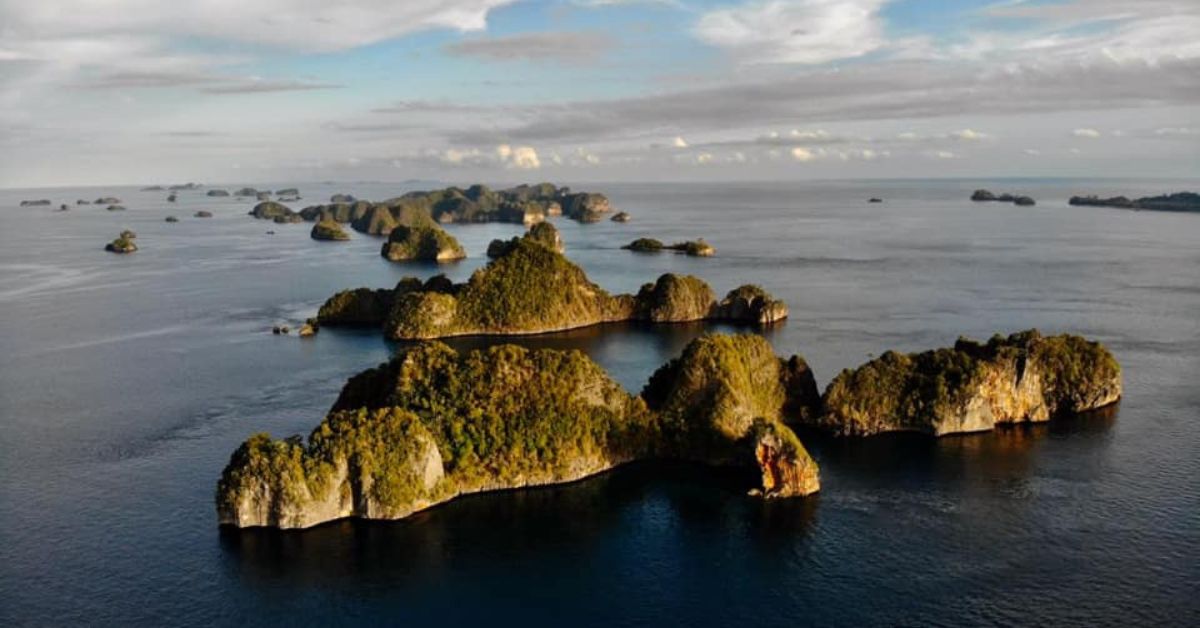
Diving Fees
Diving costs are a major component of your trip budget. This includes dive shop fees, equipment rentals, guided dives, and insurance.
If you own your diving gear, factor in maintenance costs and fees for transporting such gear. Include any marine park fees or other local charges associated with diving into your budget.
Secure Travel Insurance
Travel insurance is a crucial component of your budget. It protects against trip cancellations, medical emergencies, and lost luggage. Research different policies and choose one that covers diving activities. Include the cost of insurance in your overall budget for comprehensive protection.
Account for Activities and Excursions
Diving may be the primary focus of your trip, but don’t forget to budget for other activities. Consider tours, entrance fees to attractions, and other excursions. Allocate funds for souvenirs or gifts. Including these expenses in your budget ensures a well-rounded travel experience without financial surprises.
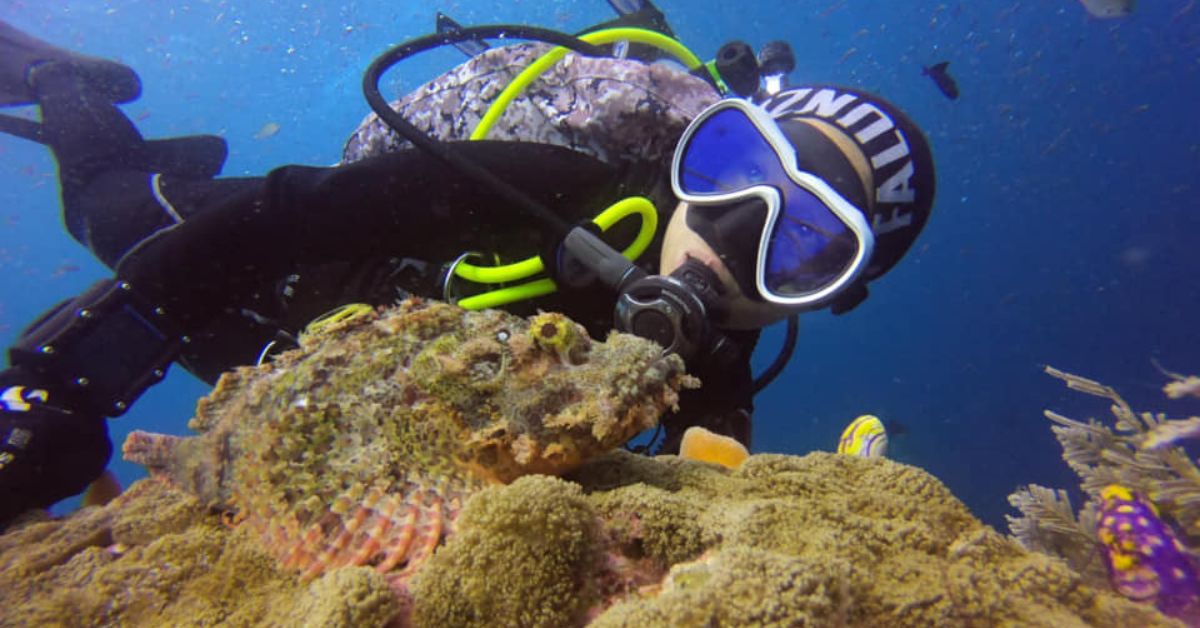
Prepare for Unexpected Costs
Unexpected costs can arise during any trip. Allocate a portion of your budget for emergencies or unforeseen expenses. This could include medical costs, additional transportation, or unexpected changes in your itinerary. Having a financial cushion provides peace of mind and ensures you can handle surprises.
Liveaboard Diving Costs
Liveaboard diving experiences give you a one-for-all deal—you pay one price for all your major logistics, including transportation to dive spots, accommodation, and meals. Dewi Nusantara is a luxury liveaboard in Indonesia that offers luxurious cabins and five-star cuisine while traveling to remote dive spots.
On top of covering the trip’s logistics, Dewi Nusantara’s liveaboard experience and expenses also include additional travel and recreational opportunities. Additional costs to our experience can include:
- Equipment rentals
- Crew gratuity
- Underwater camera rentals
- Long-distance fees
- Harbor fees
Dewi Nusantara makes budgeting for dive trips easy, as we take care of the main logistics.
Knowing how to build a budget for your dive trip involves careful planning and consideration of various expenses. By following these tips, you can create a comprehensive budget that ensures financial peace of mind and allows you to fully enjoy your underwater adventures.


